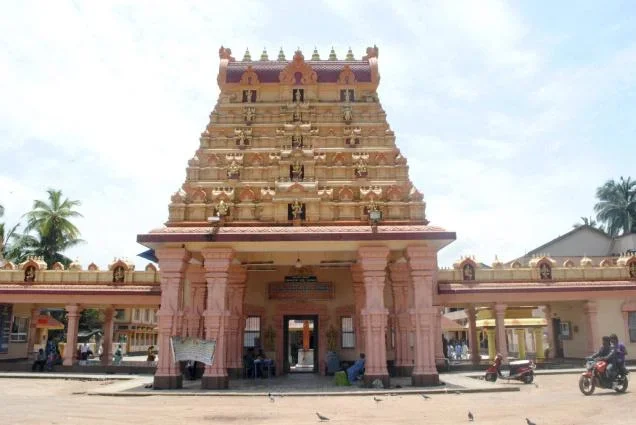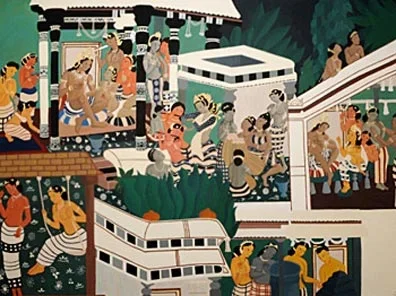prasad1
Active member
On the last day of the 23-day annual festival at Bappanadu Sri Durgaparameshwari Temple at Mulki, a Muslim family is given ‘prasada’. This family is said to be related to Bappa Beary, who according to the legend, was instrumental in the construction of the temple.
The ‘prasada’ is given on the Maha Rathotsava (Chariot Festival) Day when the deity is taken on “pete savari” (tour of the town). A Muslim family receives the ‘prasada’ even today near the Noor complex, a senior staff member at this Muzrai temple said.
This temple has stood as a place of worship for people of all religions and faiths for long — a tradition unbroken by some recent incidents which have threatened the communal harmony in this coastal belt. A document of Mulki Town Panchayat on the temple available publicly enunciates the fact further: “…Eligibility of Muslims for accepting ‘prasadas’ (blessings) of the temple is one of the special features of the Kshetra. Muslims also participate in the temple festivals…’’ The senior staff member at the temple said that a Christian family which now lives abroad strongly believes in the temple. “We send prasada every year to the family,” he said.
Temple priest Sripati Bhat said that many local Christians sell jasmine grown by them to the temple particularly on Hagalu Rathotsava-cum-Shayanotsava Day during the annual festival. “Though they get demand from outside for jasmine many local Christians ensure that they sell it only to the temple on that day,” he said. The staff member said that Muslims do perform Parvathi Swayamvara (praying for marriage), Durga Namaskara, and Naga sevas at the temple. There is mass feeding at the temple on Friday. People of all religion take food, he said.
The Mulki Town Panchayat said although proper historical records could not be traced, the temple has features of 14th century architectural style. The public document of the panchayat said: “As believed by the local people Bappa, a Muslim merchant, has played an important role in the construction of the temple. But confirming the role of the Bappa Beary in construction of the temple is not available. Whether Bappa was a Muslim or he is a Bapa Pai (a Saraswath Brahmin) or he is a follower of Jainism is still a point to ponder. The name Bappa comes in one copperplate inscription (1607 AD) available in Kotageri Jain Basadi, which read: “Moose Kavi’s sons-in-law offered Varaha 113 on this Kunhappagu to Bappa”. “However, we can assume that Muslims have a major part in this temple activity as it is mentioned in one inscription of Hanjaman (Association of Muslim merchants) surfaced recently ...,” the document said.
An article on the history of Mulki by late Paduru Gururaja Bhat, a historian on Tulu Nadu, published in a souvenir in 1984 by the temple said: “Tradition has it that years ago this temple was caused to be constructed by a Muslim called Bappa who seemed to have discovered the linga submerged under water in the locality, when he was engaged in trade. But this legend seems to be baseless.”
Meanwhile, a Yakshagana prasanga “Bappanadu Kshetra Mahatme” staged by different touring troupes for the past four decades also features Bappa Beary. The acting by late Sheni Gopalakrishna Bhat as Bappa and Goplakrishna Joshi Vitla as Usman, an accomplice of Bappa, was popular in Yakshagana for many years.
A temple believed to be built by a Muslim - The Hindu
Attachments
Last edited:


